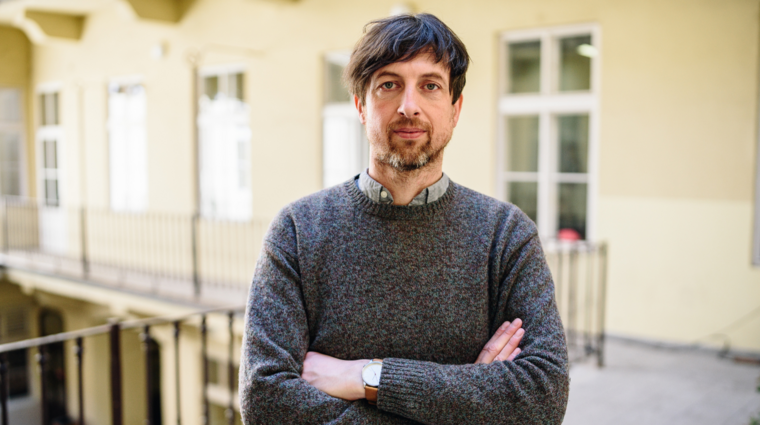The prestigious European grant goes to an expert from FSV UK. In his project, he will research the gaming industry

The prestigious European grant goes to an expert from FSV UK. In his project, he will research the gaming industry
Associate Professor Jaroslav Švelch from the Institute of Communication Studies and Journalism, Faculty of Social Sciences, Charles University (ICSJ FSV UK) received a prestigious grant from the European Research Council, the so-called ERC Consolidator Grant. He thus became the first expert in the history of FSV UK to receive this type of internationally recognized grant. For work on his project with the abbreviation GAMEINDEX, in which he will research digital games and applications for virtual reality, he will receive 1.8 million euros.
"It's a great honor and great news not only for me and the faculty, but also for all social sciences and humanities researchers dealing with computer games," says Švelch, who has been involved in the history, theory and empirical study of this medium for a long time. "First of all, I would like to congratulate Assoc. Prof. Švelch on his amazing success. Since this is already the third ERC grant that is carried out at the faculty, I believe that it is part of a more general trend and a confirmation of the quality of science and research at FSV UK. And I hope that this success will encourage other colleagues to strive for this grant," emphasizes Tomáš Karásek, Dean at FSV UK.
In his five-year project GAMEINDEX, full title Politics and aesthetics of indexical representation in digital games and VR, Švelch will focus on which places and groups of people are represented in contemporary digital games and applications for virtual reality (VR) and what techniques they use for it. He will employ the concept of index, known from semiotics, but underappreciated in the study of digital media.
"The index can be understood as an imprint or a trace of material reality in the displayed object. That is why we will directly observe in game studios how developers use techniques such as motion capture or 3D scanning, which digitize actors' performances, objects or buildings. In addition, the index can be understood as a reference to some real place, for example in the case of games that take place in a certain city or building. These are often locations known from Western popular culture such as the streets of New York or Paris, but gradually locations from Central and Eastern Europe are also included in the games. Therefore, we will also be interested in what places and groups of people are represented in the games and what techniques are used to display them," explains the game scientist.
Many congratulations!
More information can be found in the press release





